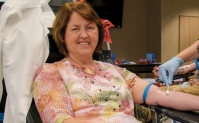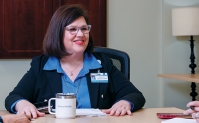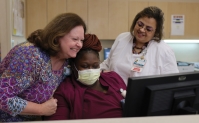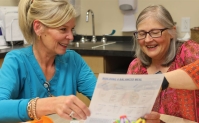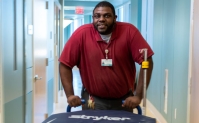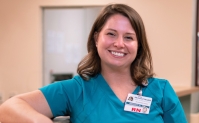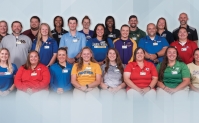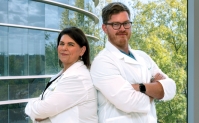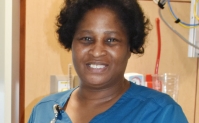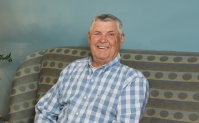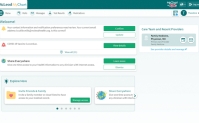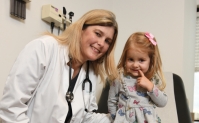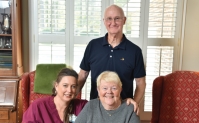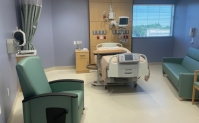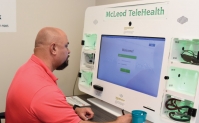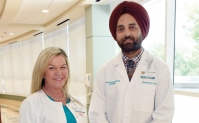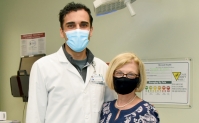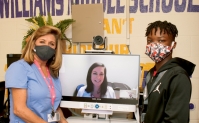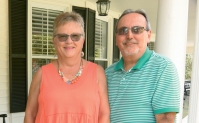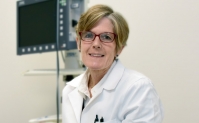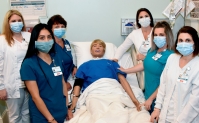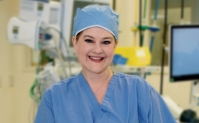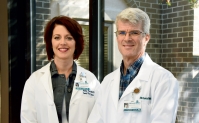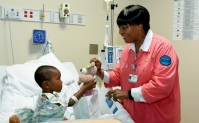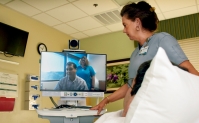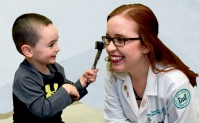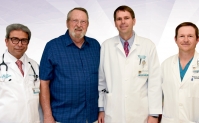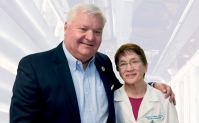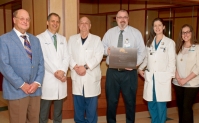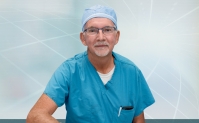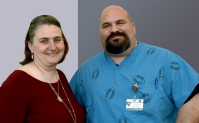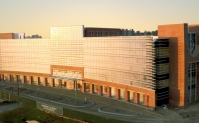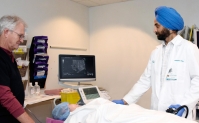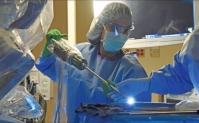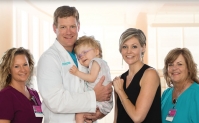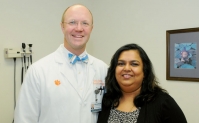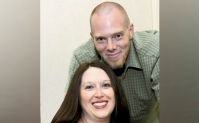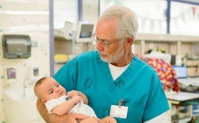You Inspire The Best in Us.
With the many advances in care and treatments, today’s patients have more and more reasons to expect the best outcomes. Here are the incredible stories of our patients and their journeys. Click on a thumbnail and scroll down to view each story.

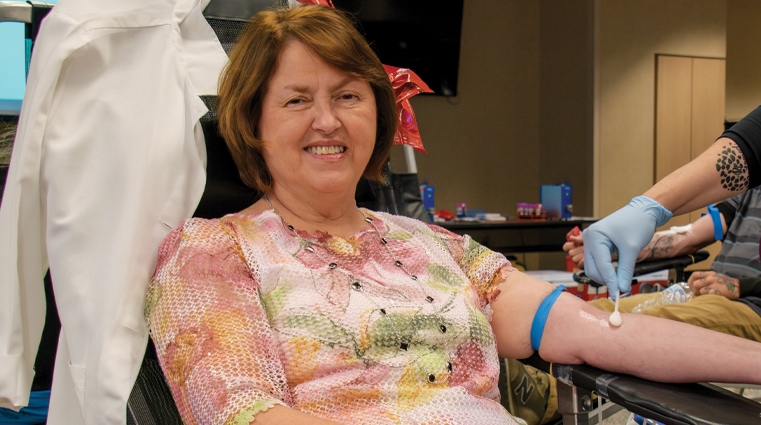
One Pint at a Time
By Tracie Foster
An ambulance pulls up to an Emergency Room (ER) entrance, two paramedics jump out running to the back of the vehicle and fling open the doors. Both hurriedly remove the patient who has clearly been in an accident and has serious injuries. As the paramedics begin to roll the patient through the sliding glass doors, a scene of chaos unfolds. Physicians and nurses gather around the patient lying on the gurney, assessing the injuries, hanging bags of fluid, and determining if the patient needs to be rushed into surgery. Someone yells out, “This patient needs units of blood, STAT!”
For Brian Brown, Lab Director at McLeod Regional Medical Center, this was a real-life experience. Brian’s sister sustained serious injuries during a motorcycle accident and required multiple blood transfusions. “Without those donated blood products, it is very likely my sister would not be here today. For every unit of blood donated up to three lives are saved. I am extremely thankful my sister was one of those lives, all because blood products were available when she needed them,” said Brian.
There are countless stories like Brian’s of those who were impacted by one person’s decision to donate blood.
While blood donations are often associated with emergencies, they are also used in a multitude of ways within the hospital walls. From cancer and kidney patients to the tiniest baby in the Neonatal Intensive Care Unit (NICU), blood products are given to many in need.
“Donating blood is simple, yet incredibly impactful,” said Kayla Tucker, Francis Marion University Nursing Student. “I may not know who receives my donation, but I am making a tangible difference in someone’s life, one pint at a time.”
“Blood donation is very important, particularly in the trauma population,” said Dr. Johnson Walker, Medical Director of Trauma Services at McLeod Regional Medical Center. “Trauma patients are at risk of infection and possible organ failure due to the loss of blood. Blood transfusions help reduce these risks. Some patients could need as much as 100 units of blood during their initial 24 to 48 hours in the hospital. Had it not been for the blood transfusions they received, those individuals would not have survived.”
The Blood Connection is an independent, non-profit community blood center that has collected and supplied blood products in South Carolina for more than 60 years.
In 2019, McLeod Health partnered with The Blood Connection to provide lifesaving blood products to patients. In addition to providing patients with blood while they are in the hospital, McLeod Health, in partnership with The Blood Connection, hosts blood drives at nine McLeod campuses throughout the year. The need for blood is constant, and every blood drive plays a vital role in helping sustain the blood supply for McLeod hospitals and communities we serve.
“We are appreciative of McLeod Health employees for supporting patients not only professionally, but by further giving of themselves through the selfless act of donating blood,” said Delisa English, President and CEO of The Blood Connection. “Without McLeod employees and community members donating, we could not ensure our communities have the blood products they need.”
There are four ways to donate blood: whole blood, platelets, plasma, and double red blood cells.
During whole blood donation, the most common method, one pint of blood is drawn. This pint contains red and white blood cells, platelets, and plasma. Medical teams primarily use whole blood donations during a trauma or surgery.
Platelets are small cell fragments found in the blood that help stop or prevent bleeding. Platelets are made in the bone marrow and used during surgeries and transplants. Cancer patients benefit from platelet donations because they are often not able to produce their own.
Plasma is the liquid portion of the blood that transports water and nutrients to the body tissues. Plasma is most used in individuals who have experienced a severe trauma, burn or shock, and those suffering from liver disease.
Double red cells is the donation process that separates the red blood cells from other blood components. Red blood cells are typically given to people with sickle cell disease, trauma patients, newborns and anyone suffering blood loss.
For more information on donating blood or to find a blood drive near you, visit www.thebloodconnection.org.
-
McLEOD REGIONAL MEDICAL CENTER FLORENCE
843-777-2000 -
McLEOD DARLINGTON
843-777-1100 -
McLEOD DILLON
843-774-4111 -
McLEOD LORIS
843-716-7000 -
McLEOD SEACOAST
843-390-8100 -
McLEOD CHERAW
843-537-7881 -
McLEOD CLARENDON
803-433-3000



-
McLEOD REGIONAL MEDICAL CENTER FLORENCE
843-777-2000 -
McLEOD DARLINGTON
843-777-1100 -
McLEOD DILLON
843-774-4111 -
McLEOD LORIS
843-716-7000 -
McLEOD SEACOAST
843-390-8100 -
McLEOD CHERAW
843-537-7881 -
McLEOD CLARENDON
803-433-3000
 Find a Doctor
Find a Doctor  Locations
Locations  Services
Services 